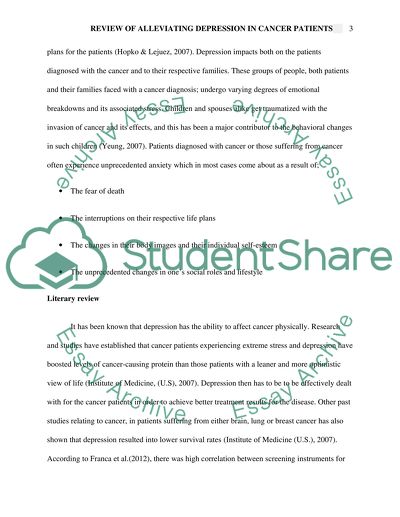Cite this document
(“Alleviating Depression in Cancer Patients Assignment”, n.d.)
Alleviating Depression in Cancer Patients Assignment. Retrieved from https://studentshare.org/nursing/1666504-depression-effects-in-cancer-patients
Alleviating Depression in Cancer Patients Assignment. Retrieved from https://studentshare.org/nursing/1666504-depression-effects-in-cancer-patients
(Alleviating Depression in Cancer Patients Assignment)
Alleviating Depression in Cancer Patients Assignment. https://studentshare.org/nursing/1666504-depression-effects-in-cancer-patients.
Alleviating Depression in Cancer Patients Assignment. https://studentshare.org/nursing/1666504-depression-effects-in-cancer-patients.
“Alleviating Depression in Cancer Patients Assignment”, n.d. https://studentshare.org/nursing/1666504-depression-effects-in-cancer-patients.


